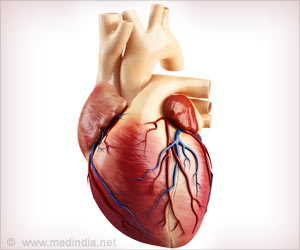High fat diets could help damaged hearts function better! The Case Western Reserve University School of Medicine report that consequent on such diets the heart’s ability to pump improved.

“Does that mean I can go out and eat my Big Mac after I have a heart attack,” comments assistant professor of physiology and biophysics Margaret Chandler, PhD, “No, but treatments that act to provide sufficient energy to the heart and allow the heart to utilize or to maintain its normal metabolic profile may actually be advantageous.”
The research, published in American Journal of Physiology-Heart and Circulatory Physiology, suggests that for a damaged heart, a balanced diet that includes mono- and polyunsaturated fats, and which replaces simple sugars (sucrose and fructose) with complex carbohydrates, may be beneficial.
In a healthy person, the heart uses both fats and carbohydrates to obtain the energy it needs to continue pumping blood 24/7. Ideally, fats are utilized because they yield more energy. However, if a person develops heart failure (or suffers from ischemia — a lack of blood supply), the heart seems to prefer using glucose for fuel, because glucose requires less oxygen to produce energy.
While heart disease remains the leading cause of death in the United States, more people are surviving heart attacks that ever before. Survivors though pay a price for this improved survival, living with a damaged heart that usually progresses to heart failure. And unfortunately, medications and procedures have yet to “cure” heart failure, or halt the deterioration of heart function.
Upon initiation of these dietary intervention studies, researchers previously thought a high-fat diet fed to animal models that have suffered a heart attack, would overload their tissues with fat, which in turn would have a toxic effect on their hearts. Surprisingly, the heart’s pump function improved on the high-fat diet.
Advertisement
However, the biological models with heart failure that were fed high-fat diets showed signs of insulin resistance, exhibited by a decreased amount of glucose taken up by the heart, as might be expected in a diabetic patient.
Advertisement
The hypothesis, according to Dr. Chandler, is that because the heart is being provided with excess amounts of fats, it is forced to utilize its preferred energy source. After suffering an injury that leads to failure, the heart cannot do this on its own, so the researchers have to manipulate its metabolism to use the energy source that maximizes or maintain its function as near to “normal” as possible.
“We want to provide an environment for the heart which allows it to be as effective and efficient a pump as possible, regardless of the damage it has undergone,” Dr. Chandler says.
Source-Medindia












